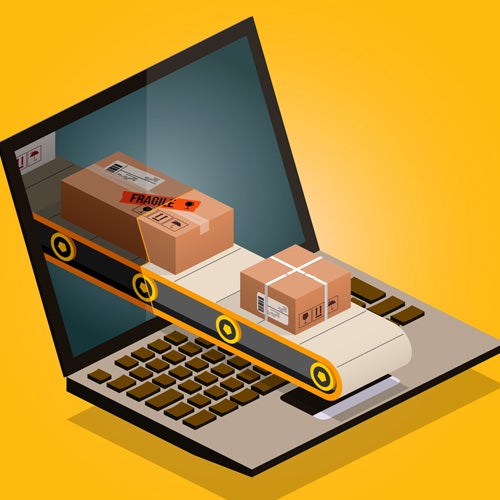Chrome OS and Partners: A New Way to Contribute to a Sustainable Future

Another Step Towards Sustainability: Deconstruction Through Google’s Eyes
June 18, 2021
Google’s Ambitious Green Goal: Integration of Clean Energy Into its Operations
July 9, 2021Google is committed to doing its part to protect the environment alongside its customers, partners, and larger communities. It does this by building energy-efficient data centers and by purchasing renewable energy.
Google became a carbon-neutral corporation in 2007, and it was the first company to use renewable energy to meet 100% of its yearly power use in 2017. However, they have no intention of stopping. By 2030, Google wants all of its data centers and campuses to run on carbon-free electricity 24/7.
Chrome OS is one such initiative taken by Google in its road towards sustainability.
What is Chrome OS?
Chrome OS is a Google-developed and owned operating system. It’s open-source and built on Linux; thus, it’s completely free to use. Chrome OS has a lot of advantages, one of which is its ease of use. Basically, Chrome OS is an operating system that powers Chromebook.
Chrome OS is essentially a web browser at its core while having a desktop experience comparable to that of a Windows system. The latest release of Chrome OS was on June 10th, 2021.
Cloud-Based Platforms Aiding in the Reduction of Carbon Emissions
Chrome OS was born in the cloud and was introduced as a more modern, environmentally friendly computing experience. The power management capabilities of Chrome OS allow for efficient charging and improved device performance.
The Kingston and Sutton London Borough Councils met their goal of modernizing computing for their staff when they distributed over 3,800 Chrome OS devices. They also saw annual reductions in greenhouse gas emissions and energy consumption.
Kingston and Sutton Councils notes that with the switch to Chromebooks, there was a 32% reduction in energy use. To remove an equal amount of pollutants from the atmosphere, one would need 3,700 acres of mature forest, and when you combine this with the lower levels of commuting by employees, the reduction in carbon emissions is of many folds.
Citrix Systems, a company focused on software and cloud computing technology notes that using legacy devices consumes substantially more computational resources than is required to complete routine tasks. Adopting a thin-client strategy, where the processing power is performed centrally in the cloud, as with Chrome OS devices, minimizes dependency on the device for performance. This allows for a more efficient and energy-saving manner of working.
What advantages do Chrome OS and Other Partners offer?
Effortless Sharing of Information
The cloud-profile feature of Chrome OS allows many users to share information. Device sharing is a simple yet powerful approach for businesses to be productive while using fewer resources, resulting in reduced waste.
Simpler to Manage
On Chrome OS, Grab & Go and kiosk mode allow businesses to configure several profiles and user modes so that one device may support multiple users without sacrificing speed and delaying workflow. Furthermore, new Chromebooks receive up to 8 years of OS upgrades and do not slow down with time, allowing them to be used for longer periods of time.
Extends the Device’s Life Span
CloudReady from Google also helps to update and extend the life of your organization’s existing PC and Mac systems, reducing e-waste and increasing value when used in conjunction with Chrome OS devices.
Nick Fuchs, Springfield Clinic’s Senior Director says that they were able to go deep into their existing IT equipment inventory and mobilize supply high-performing endpoints from 7-year-old HP laptops to newly purchased Dell Optiplex workstations. They were also able to fulfill the organization’s demands by allowing workers to work remotely.
Chrome OS Uses Recyclable Materials
Chrome OS devices come in a variety of shapes and sizes, including clamshells, tablets, and convertibles. They last longer thanks to the durable design and long-lasting components including robust gadgets, spill-proof keyboards, and scratch-resistant Gorilla Glass.
Effect of Chrome OS on Supply Chains
Every day, Insight Enterprises, CDW, and other Google partners use Chrome OS to improve the efficiency of their internal operations, supply chain and logistics, and customer service. Chrome OS allows them to work closely with the clients and also helps them optimize their IT and implement more sustainable computing solutions, such as smarter lifecycle management, responsible e-waste disposal. It also focuses on energy-efficient devices and cloud applications that use fewer physical resources.
CDW, another Google partner, offers long-term IT solutions that assist Chrome OS customers to achieve their objectives while remaining environmentally conscious. As a result, they are also committed to continuous environmental improvement. They and other Google partners are continuously working to make the operations more energy-efficient, and maximize the impact of the recycling initiatives.
The availability of environmentally friendly devices like Chromebooks and operating systems like Chrome OS fuels the objective to assist the workforce to be mobile and productive while using fewer resources and being sustainable. To know more about Google’s sustainability initiatives, visit Econz Cloud.


